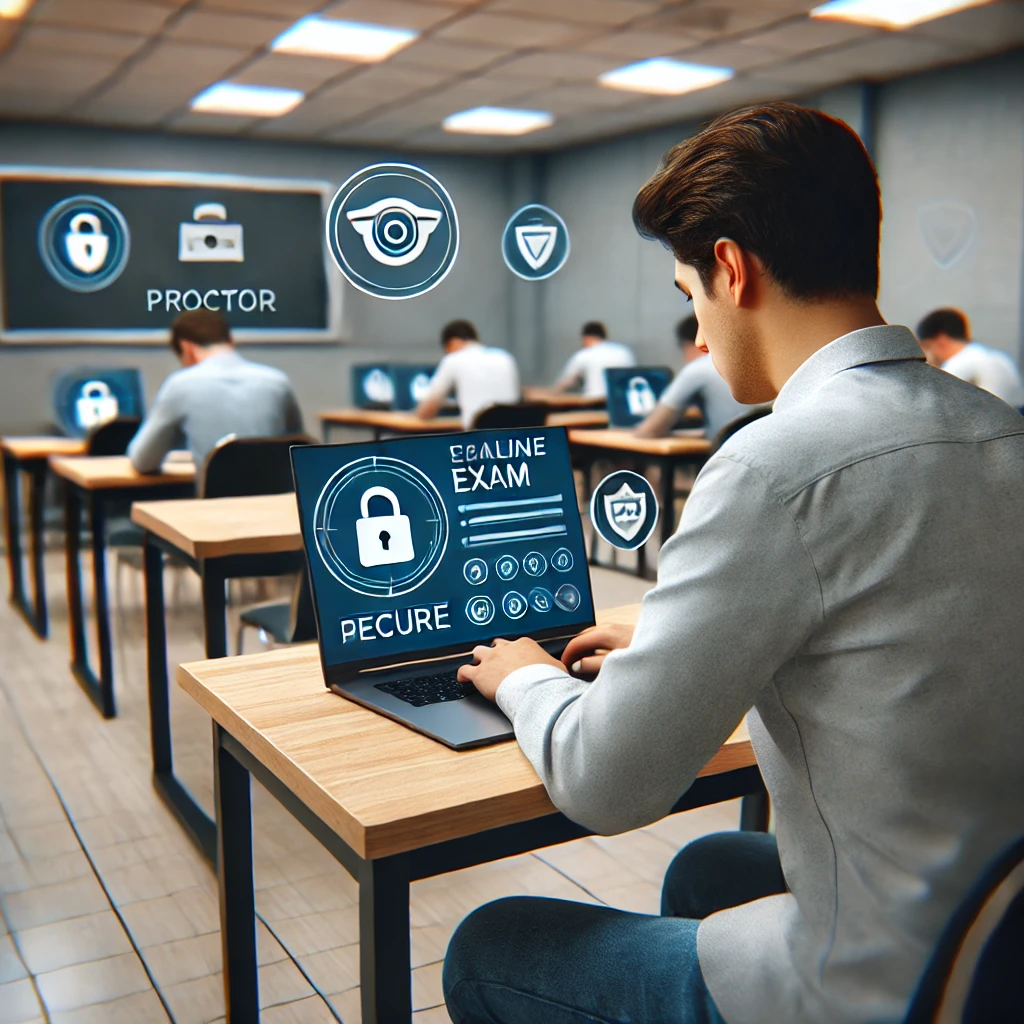Understanding and Preventing Cheating in Online Assessments: A Guide for Educators.
Understanding and Preventing Cheating in Online Assessments: A Guide for Educators
As online assessments become more prevalent, students may attempt to exploit vulnerabilities to cheat. By understanding these methods, institutions can take proactive steps to secure their exams and ensure fair outcomes. Here are some common tactics students might use and strategies for prevention:
- Using External Devices: Students may use smartphones, tablets, or other external devices to search for answers during the exam. Prevention: Require students to show their entire workspace before the exam begins and use monitoring software that can detect the presence of additional devices.
- Impersonation: A student might have someone else take the exam on their behalf. Prevention: Implement identity verification procedures, such as requiring students to show a valid ID on camera and using biometric tools like facial recognition.
- Screen Sharing: Students may use screen-sharing software to allow someone else to see their exam and assist them. Prevention: Use proctoring software that blocks screen sharing and closely monitors any suspicious activity.
- External Assistance: Students might receive help from someone off-camera who provides answers or guidance during the exam. Prevention: Require students to perform a full room scan before the exam and monitor audio for signs of communication with others.
- Manipulating Proctoring Software: Some students may try to manipulate or bypass proctoring software by using virtual machines, fake webcams, or other techniques. Prevention: Regularly update and test proctoring software to detect and prevent such manipulation.
- Hiding Cheat Sheets: Despite proctoring, students may attempt to use hidden notes or cheat sheets during the exam. Prevention: Conduct a thorough inspection of the student’s workspace and monitor their behavior throughout the exam to detect any suspicious activity.
- Technical Disruptions: Students might claim technical difficulties to buy time or cover up cheating attempts. Prevention: Have clear protocols in place for handling technical issues and ensure that proctors are trained to manage these situations effectively.
Strengthening Online Assessment Security
To maintain the integrity of online exams, educational institutions should:
- Use advanced proctoring tools that monitor the student’s environment, detect suspicious activities, and prevent unauthorized actions.
- Train proctors to recognize and address signs of cheating, ensuring that all students are fairly assessed.
- Communicate clear exam rules to students and enforce strict guidelines about the exam environment and allowable materials.
By understanding these potential cheating methods and implementing robust preventive measures, educators can protect the fairness and integrity of online assessments.




